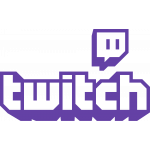The Best Esports Coaches: Who Are They?
The profession of an esports coach has evolved from an informal role into a strategically important position. The best esports coaches combine a deep understanding of the game with teaching skills and leadership qualities. Modern esports coaches perform multifaceted duties: from tactical analysis to psychological support for the team. Developing a career as an esports coach requires continuous learning and adapting to the changing game meta.
The Evolution of the Coach’s Role in Esports
Historically, the first professional esports coaches were former players who moved into leadership positions. With increasing prize pools and audience interest, the coach’s role has become significantly more complex. Today, famous esports coaches manage not only the gameplay but also team dynamics, schedules, and strategic planning. Modern top esports coaches work with analysts, sports psychologists, and nutritionists to achieve maximum results.
Key Skills and Competencies of an Esports Coach
An effective esports coach must possess a diverse set of hard and soft skills. Deep knowledge of game mechanics and the current meta is a basic requirement. Analytical skills in an esports coach’s work include the ability to read statistics and identify patterns. Communication skills allow them to convey ideas to players and resolve conflicts. Leadership qualities help motivate the team during downturns. Understanding training methodologies for different types of esports athletes is necessary for an individual approach.
Methods of Work and Team Preparation
Advanced professional esports coaches develop comprehensive training systems. Daily match reviews using demo recordings have become an industry standard. Tactical seminars and workshops allow practicing new strategies. Many of the best esports coaches implement regular scouting sessions to study opponents. Modern preparation methods include biometric data analysis to optimize workloads. A systematic approach to improving gaming skills distinguishes top specialists.
Famous Coaches and Their Contribution to Esports Development
The esports industry has produced several legendary figures whose methods have become benchmarks. Famous esports coaches like Zonic from Counter-Strike demonstrate the importance of building team culture. Danny "Zonic" Sorensen led Astralis to multiple championship titles by introducing innovative training approaches. In Dota 2, top esports coaches like Aui_2000 show the value of analytical thinking. Their drifting and map control methods are studied by new generations of coaches. Successful professional esports coaches create unique strategic systems adopted by other teams.
Career Path: How to Become an Esports Coach
The start of a coaching career in esports is usually connected with competitive gaming experience. Many esports coaches began by analyzing their own gameplay and helping less experienced players. Building a reputation through content creation or working with academy teams opens opportunities. How to become an esports coach is known to few: it requires a combination of gaming experience, teaching skills, and networking. Certification programs and mentorship from experienced coaches accelerate professional growth. Constant study of new game patches and metas is essential to stay relevant.
Analytical Work and Data Usage
Modern coaching duties in esports include deep work with analytics. Analytics in the esports coach’s work covers studying statistics of teams and individual players. Professionals use specialized software to identify opponents’ weaknesses. Advanced preparation methods rely on tracking performance and progress data. Machine learning implementation for gameplay analysis is becoming the new standard. Effective professional esports coaches integrate analytical findings into the training process.
Psychological Aspects of Working with Teams
Successful top esports coaches pay significant attention to players’ mental states. Creating a healthy team atmosphere directly affects performance results. Working with motivation and burnout has become an integral part of the esports coach’s duties. Many top esports coaches collaborate with sports psychologists to develop mental training programs. Managing expectations and stress during tournaments requires developed emotional skills. Building trusting relationships with each player allows maximizing their potential.
Organizational Duties and Strategic Planning
Besides direct work with players, an esports coach performs administrative functions. Developing training schedules and participating in transfer policies require organizational skills. Famous esports coaches often take part in player selection and roster formation. Strategic planning for the season includes setting goals and priorities for performances. Coordination with other staff members ensures smooth organizational work. Managing resources and budgeting the training process also fall within the coach’s responsibilities.
The Future of the Esports Coach Profession
The industry continues to move toward greater professionalization of coaching. Specialization of professional esports coaches in specific aspects of the game is becoming a trend. The introduction of virtual reality technologies for match simulation will open new opportunities. Standardization of education and certification will simplify entry into the esports coaching career. Developing a scientific approach to training methods will improve preparation efficiency. International experience exchange among top esports coaches from different regions will enrich coaching practices.
Conclusion: The Multifaceted Nature of the Modern Esports Coach
The profession of an esports coach continues to become more complex and diversified. Successful esports coaches combine game expertise with management and psychology skills. Continuous learning and adaptation to changes are necessary to maintain competitiveness. Becoming an esports coach today means readiness for multifaceted work with data, people, and strategies. The contribution of experienced mentors to esports development is hard to overestimate – they shape champions and push the industry forward. Professional coaching has become an indispensable element of success in modern competitive gaming.
Our Services for Streamers
Our Services for Content Creators











